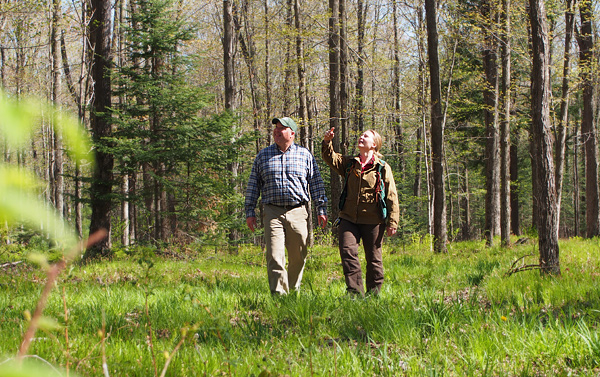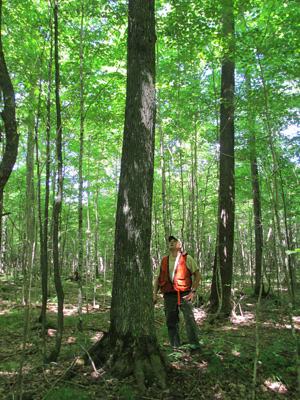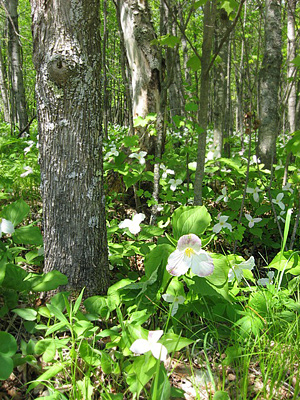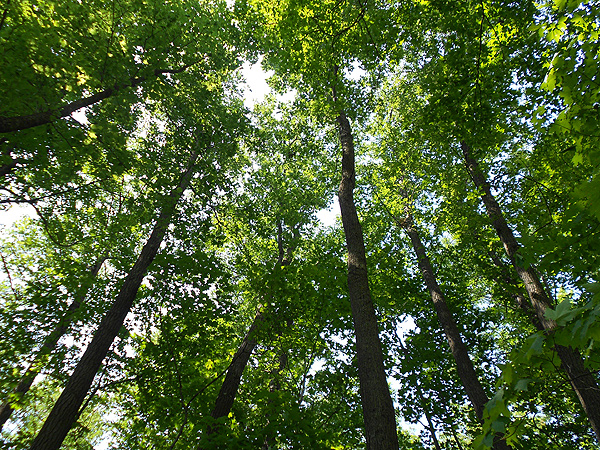
The Society of American Foresters (SAF) is the national, scientific and educational organization representing the forestry profession in the United States. Founded in 1900 by Gifford Pinchot, it is the largest professional society for foresters in the world. The mission of the Society of American Foresters is to advance the science, education, technology, and practice of forestry; to enhance the competency of its members; to establish professional excellence; and, to use the knowledge, skills, and conservation ethic of the profession to ensure the continued health and use of forest ecosystems and the present and future availability of forest resources to benefit society.
SAF provides information and networking opportunities to prepare its members for the challenges and the changes that face natural resource professionals. The Society is the accreditation authority for professional forestry education in the United States and also publishes a number of periodicals to help members stay current in their professional knowledge.
SAF is the nationally recognized source for information on the management of natural resources. On Capitol Hill in Washington D.C. and in Madison, the SAF is often the first source for information on natural resources policy. Membership in the SAF has been called the most important step in a natural resource professional’s career. Foresters and forestry-related professionals are invited to join the Society. For more information, call the national SAF headquarters in Bethesda, MD at (301) 897-8720 or visit national SAF online.
Members subscribe to a code of professional ethics that recognizes stewardship of the land as the cornerstone of the forestry profession and requires members to advocate and practice land management consistent with ecologically sound principles. The code of ethics is the foundation for SAF members’ professional behavior in relations with the land, the public, their employees (including clients), and with each other.
About This Site

This site is maintained for the 400 members of the Wisconsin Society of American Foresters (WISAF).
The purpose of the Website is to:
- Provide WiSAF members with an easily accessible and timely source of information on local SAF events, state SAF training opportunities and forestry issues that impact our profession.
- Strengthen opportunities for WiSAF members to communicate and discuss activities within the forestry profession.
- Highlight the role of professional foresters in Wisconsin and raise awareness of forestry in urban and rural communities across Wisconsin.
- Increase the visibility of WiSAF as an advocate of sustainable forest management.
SAF Organizational Structure
The structure of the Society is made up of:
SAF Council – The Society is governed by a Council comprising the president, vice-president, immediate past president, and 11 elected members. Chairs of the House of Society Delegates, the Forest Science and Technology Board, and the Committee on Forest Policy attend and participate in Council meetings and discussions as non-voting members. Our representative on the national SAF Council is John Kotar, a forestry professor at UW-Madison.
33 State and Multistate Societies – These societies elect their own officers and committees for state and regional activities.
264 Chapters – These local chapters fall within the state and multistate societies. Wisconsin Society of American Foresters includes six local chapters across the state plus two student chapters. Chapters are the core of the Society.
28 Technical Working Groups – The working groups are meant to accommodate specific professional interests.
About SAF in Wisconsin
Wisconsin SAF is one of the 33 state and multi-state societies that make up the Society of American Foresters. Our members represent all segments of the forestry profession in Wisconsin and our membership includes natural resource professionals in public and private settings, researchers, CEOs, administrators, educators, forest technicians and students.
 Our mission as foresters is to be responsible stewards of the earth’s forests while meeting society’s vital needs. The challenge of our mission lies in maintaining productive and diverse forest land base, while utilizing its resources. We meet this challenge by carefully monitoring and managing the effects of natural and human forces on the forest. Our decisions are guided by our professional knowledge, our desire to improve citizens’ lives, and our respect and concern for the entire forest ecosystem. By advancing forestry science, education, technology, and the practice of forestry, WISAF provides the leadership to achieve its mission.
Our mission as foresters is to be responsible stewards of the earth’s forests while meeting society’s vital needs. The challenge of our mission lies in maintaining productive and diverse forest land base, while utilizing its resources. We meet this challenge by carefully monitoring and managing the effects of natural and human forces on the forest. Our decisions are guided by our professional knowledge, our desire to improve citizens’ lives, and our respect and concern for the entire forest ecosystem. By advancing forestry science, education, technology, and the practice of forestry, WISAF provides the leadership to achieve its mission.
WiSAF members, in their various professional jobs, play a major role in managing the 16-million acres of forest land in Wisconsin. These forests provide a variety of benefits for Wisconsin residents and the nation in the form of wildlife, water, recreation and forest products. The forestry profession has adapted to changing priorities for Wisconsin’s forests. During the early days of economic and community development, the emphasis was on timber production. Today, foresters manage for a rich diversity of forest resources to achieve landowner objectives and meet society’s needs and the needs of future generations. WISAF members share a common goal – the wise use of the Wisconsin’s forest resources.
Wisconsin SAF Anti-Trust Summary
- Adopted April 1980
- The purpose of SAF is to advance the science, technology, education, and practice of professional forestry in America.
- SAF has unequivocal support for the policy of competition served by anti-trust laws and it will support and respect those laws.
- No SAF activity or communication shall include discussion that might be viewed as an agreement among competitors with regard to fees, terms or conditions of sale, timing, volume or customers.
- No SAF activity or communication shall include discussion that might be viewed as an attempt to prevent any person or business from gaining access to a market or customer.
- No SAF activity or communication shall include discussion that might be viewed as an attempt to prevent purchasing or selling materials, equipment, supplies or services from any supplier or to any customer.
- No SAF activity or communication shall include discussion of costs for the purpose of fixing prices or reducing competition in the market.
- These rules shall be followed during informal discussion while traveling to and from any SAF meeting and well as in formal SAF activities.

